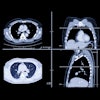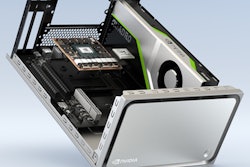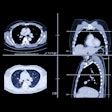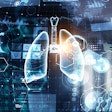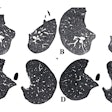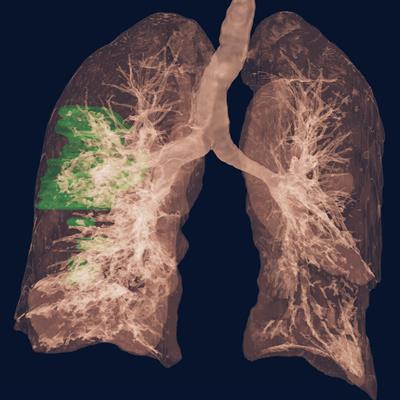
Graphics processing unit (GPU) technology developer Nvidia has introduced two new artificial intelligence (AI) models trained to provide lung segmentation and detection of COVID-19 on CT exams. The company is making these models available to researchers to facilitate the development of new predictive AI algorithms.
Announced as part of a launch for several new healthcare-oriented offerings to help in the fight against COVID-19, the two models were co-developed by Nvidia with the U.S. National Institutes of Health (NIH) Clinical Center via a cooperative research and development agreement.
The algorithms were created in under three weeks using thousands of images from China, Italy, Japan, and the U.S. that were labeled by radiologists at the NIH, said Kimberly Powell, vice president and general manager for healthcare for Nvidia. The lung segmentation and COVID-19 classification models can be used as building blocks by other researchers.
"Researchers can build upon these models to build more sophisticated prediction models of patient prognosis," she said. "[For example], you can look inside these images and start to predict how many of these patients might have to enter the ICU [intensive care unit]. These are incredible forecasting information for what needs to get prepared inside of our hospital and healthcare infrastructure."
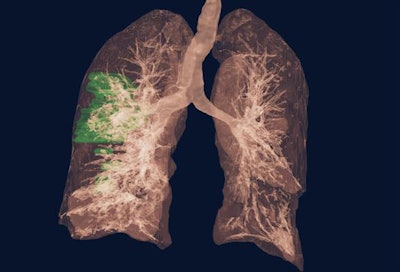 Clara COVID-19 AI Classification Model (for research use only). Image courtesy of Nvidia.
Clara COVID-19 AI Classification Model (for research use only). Image courtesy of Nvidia.The models, which were built using Nvidia's Clara application framework, will be available to researchers globally in the latest release of Clara Imaging on the company's NGC software hub, Powell said.
"This is going to empower research that will be continuously happening around the world," she said. "You can take these pretrained models and then you can adapt them locally to your environment."
Nvidia noted that it's also working with Mass General Brigham on a multinational federated learning initiative to develop COVID-19 AI models for radiography imaging. This program would enable adaptation of algorithms to local data without sharing any patient data, according to the company.
In other healthcare announcements, Nvidia also said that its Clara Parabricks computational genomics software was able to analyze the whole human genome DNA sequence in under 20 minutes -- a new speed record. In addition, the firm launched Clara Guardian, an application framework that utilizes video analytics and automatic speech recognition technologies to perform vital sign monitoring while decreasing staff exposure to the disease.



